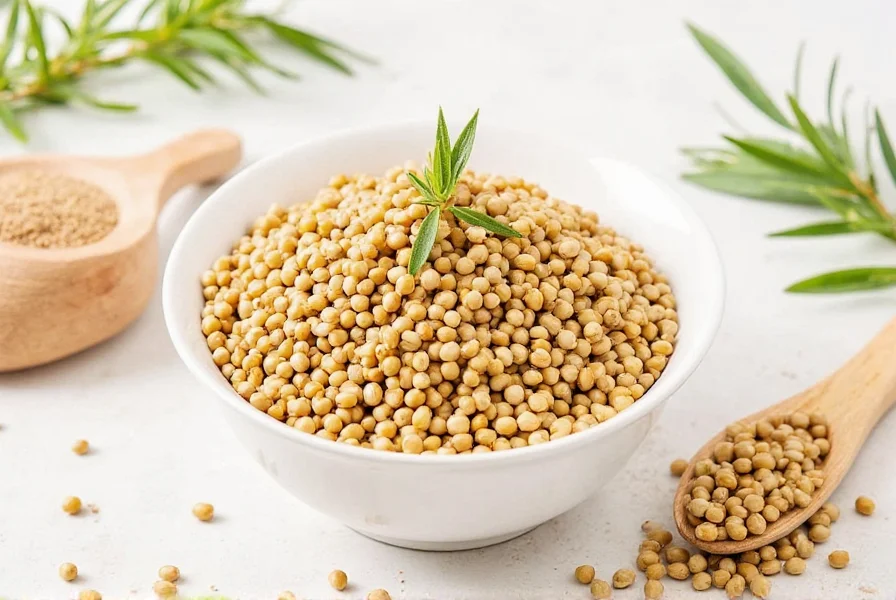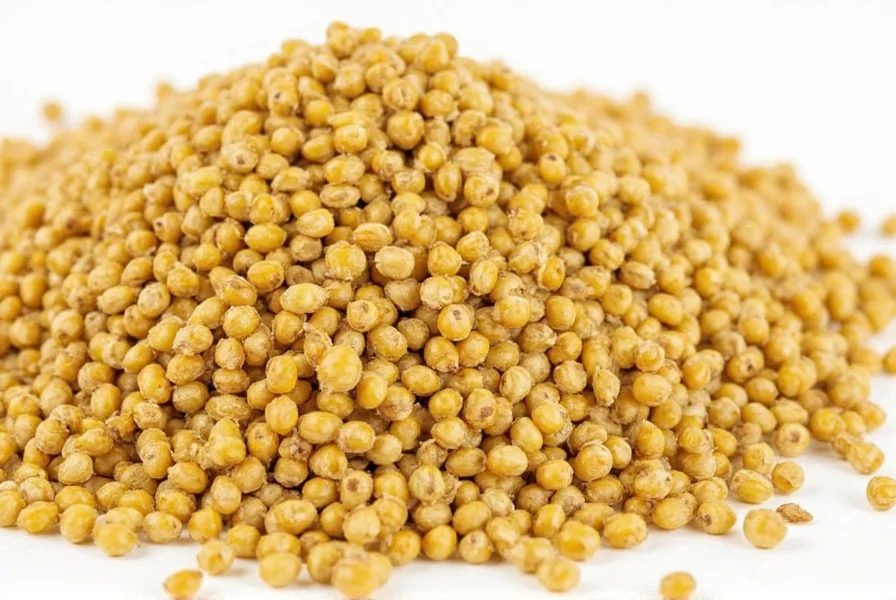Fenugreek (Trigonella foenum-graecum), a centuries-old medicinal plant native to the Mediterranean and South Asia, has gained significant attention in modern research for its diverse health-promoting properties. This versatile herb, with its distinctive maple-like aroma, has been used in traditional Ayurvedic and Chinese medicine for generations. Today, scientific studies are increasingly validating many of these traditional uses, revealing fenugreek's potential to address several common health concerns through its rich composition of bioactive compounds including saponins, flavonoids, and fiber-rich galactomannans.
What Is Fenugreek and Its Historical Significance
Recognizable by its small, amber-colored seeds and clover-like leaves, fenugreek has been cultivated since ancient Egyptian times. Historical records show its use in embalming practices and as a therapeutic herb for digestive issues. In traditional Indian medicine, fenugreek seeds were commonly prescribed for lactation support and wound healing. The plant's scientific name Trigonella foenum-graecum references the triangular shape of its seed pods and its historical association with Greek hay (foenum-graecum).

Scientifically-Validated Health Benefits of Fenugreek
Blood Sugar Regulation and Diabetes Management
One of fenugreek's most well-documented benefits is its ability to improve glycemic control. Multiple clinical studies demonstrate that fenugreek seeds can significantly reduce fasting blood glucose levels and improve glucose tolerance. The mechanism appears to involve delayed carbohydrate absorption and enhanced insulin sensitivity, primarily due to the high fiber content and the presence of 4-hydroxyisoleucine, an amino acid that stimulates insulin secretion.
A comprehensive 2020 meta-analysis published in Nutrition Reviews examined 15 clinical trials involving over 1,000 participants with type 2 diabetes. Researchers found that fenugreek supplementation (typically 2-5 grams daily) reduced fasting blood glucose by an average of 17.0 mg/dL and lowered HbA1c levels by 0.58% compared to control groups. These findings position fenugreek as a potentially valuable complementary approach for diabetes management, though it should never replace prescribed medications.
Support for Lactation and Breast Milk Production
Fenugreek has long been used as a galactagogue to increase breast milk supply. Modern research supports this traditional use, with multiple studies showing positive effects on milk production. The exact mechanism isn't fully understood, but researchers believe fenugreek may stimulate sweat production (mammary glands are modified sweat glands), thereby increasing milk volume.
A 2018 randomized controlled trial in the Journal of Alternative and Complementary Medicine followed 81 postpartum women, finding that those taking fenugreek supplements produced approximately 49% more breast milk by day 7 compared to the placebo group. However, experts recommend consulting with a lactation specialist before using fenugreek, as individual responses vary and excessive use may lead to oversupply issues.
Testosterone and Male Reproductive Health
Emerging research suggests fenugreek may support male hormonal health. Several studies indicate that fenugreek extract can increase testosterone levels and improve sexual function in men. A double-blind, placebo-controlled study published in Phytotherapy Research followed 50 men with low libido for 6 weeks. The group receiving fenugreek extract showed significant improvements in sexual desire, frequency of intercourse, and morning erections compared to the placebo group.
Researchers attribute these effects to fenugreek's potential to inhibit enzymes that convert testosterone to dihydrotestosterone (DHT) and its possible influence on luteinizing hormone production. However, more large-scale human studies are needed to confirm these preliminary findings and determine optimal dosing protocols.
| Benefit Category | Key Research Findings | Recommended Dosage | Time to Notice Effects |
|---|---|---|---|
| Blood Sugar Control | 17 mg/dL average reduction in fasting glucose | 2-5 grams daily of seed powder | 2-4 weeks |
| Lactation Support | 49% increase in milk production by day 7 | 1-3 grams, 2-3 times daily | 24-72 hours |
| Testosterone Support | Significant improvement in sexual function markers | 500-600 mg standardized extract daily | 4-6 weeks |
| Cholesterol Management | 14% reduction in LDL, 11% increase in HDL | 18-25 grams daily of seed powder | 8-12 weeks |
Cholesterol and Cardiovascular Health
Fenugreek shows promise in improving lipid profiles, potentially reducing cardiovascular risk. The soluble fiber in fenugreek seeds binds to bile acids, prompting the liver to use cholesterol to produce more bile, thereby lowering circulating cholesterol levels. Additionally, fenugreek's antioxidant compounds may help prevent oxidation of LDL cholesterol, a key step in atherosclerosis development.
A systematic review in the Journal of Dietary Supplements analyzed eight clinical trials and found that fenugreek supplementation significantly reduced total cholesterol (by 14%), LDL cholesterol (by 14%), and triglycerides (by 15%), while increasing beneficial HDL cholesterol by 11%. These effects were most pronounced with higher doses (18-25 grams daily) and longer durations (8-12 weeks).
Digestive Health and Anti-Inflammatory Properties
Fenugreek's mucilage content provides soothing effects on the digestive tract, making it useful for conditions like heartburn and gastritis. The seeds form a protective layer over mucous membranes, reducing irritation and inflammation. Research published in Food Chemistry identified several anti-inflammatory compounds in fenugreek that inhibit pro-inflammatory cytokines.
Traditional use of fenugreek for constipation is supported by its high fiber content (approximately 24.6% dietary fiber), which promotes regular bowel movements. However, adequate water intake is essential when increasing fiber consumption to prevent potential digestive discomfort.

Nutritional Profile of Fenugreek
Fenugreek seeds are nutritionally dense, providing significant amounts of essential nutrients per 100-gram serving:
- Protein: 23 grams
- Dietary fiber: 24.6 grams
- Iron: 33.5 mg (186% of daily value)
- Magnesium: 191 mg (48% of daily value)
- Manganese: 1.23 mg (54% of daily value)
- Vitamin B6: 0.6 mg (35% of daily value)
These nutrients contribute to fenugreek's wide-ranging health effects, supporting everything from energy metabolism to bone health. The seeds also contain unique compounds like diosgenin, which has been studied for potential hormonal effects, and trigonelline, which may contribute to blood sugar regulation.
How to Use Fenugreek: Forms and Dosage Recommendations
Fenugreek is available in several forms, each with different applications:
- Whole seeds: Can be soaked overnight and consumed in the morning, typically 1-2 teaspoons
- Ground powder: Added to foods or beverages, commonly used at 2-5 grams daily for blood sugar support
- Tea: Made by steeping 1-2 teaspoons of seeds in hot water for 10 minutes
- Extracts and supplements: Standardized products providing concentrated active compounds
- Topical applications: Paste made from seeds for skin conditions or wound healing
For specific health goals, research suggests these evidence-based dosages:
- Blood sugar management: 2-5 grams of seed powder daily
- Lactation support: 1-3 grams, 2-3 times daily of seed powder or equivalent extract
- Cholesterol improvement: 18-25 grams of seed powder daily
- Testosterone support: 500-600 mg of standardized extract daily
Potential Side Effects and Important Precautions
While generally recognized as safe when consumed in food amounts, fenugreek may cause side effects at therapeutic doses:
- Gastrointestinal issues: Diarrhea, gas, or bloating (particularly at higher doses)
- Allergic reactions: Possible in individuals sensitive to peanuts or chickpeas (same plant family)
- Maple syrup odor: A harmless but distinctive body odor and urine smell
- Lowered blood sugar: May interact with diabetes medications, requiring monitoring
- Bleeding risk: May interact with blood-thinning medications due to coumarin content
Special populations should exercise caution:
- Pregnant women: High doses may stimulate uterine contractions
- Nursing mothers: Generally considered safe for lactation support but monitor infant for digestive changes
- Surgery patients: Discontinue at least 2 weeks before scheduled procedures due to blood sugar effects
- Individuals with hormone-sensitive conditions: Consult healthcare provider due to potential hormonal effects
Conclusion: Integrating Fenugreek Into a Holistic Health Approach
Fenugreek represents a promising natural option for several health concerns, with growing scientific support for its traditional uses. The most compelling evidence exists for blood sugar regulation, lactation support, and potential cardiovascular benefits. When considering fenugreek supplementation, it's essential to view it as part of a comprehensive health strategy rather than a standalone solution.
Quality matters significantly—choose organic, non-irradiated fenugreek from reputable sources to ensure purity and potency. Always consult with a healthcare provider before starting fenugreek supplementation, especially if you have underlying health conditions or take medications. For most people, incorporating fenugreek as part of a balanced diet and healthy lifestyle can provide meaningful health benefits without significant risk.
Frequently Asked Questions
How quickly does fenugreek work for increasing breast milk supply?
Many nursing mothers report noticing increased milk production within 24-72 hours of starting fenugreek supplementation, with maximum effects typically seen within 1-2 weeks. However, individual responses vary, and some women may not experience significant changes. It's recommended to take 1-3 grams, 2-3 times daily, but consult with a lactation specialist for personalized guidance.
Can fenugreek lower blood sugar too much when taken with diabetes medication?
Yes, fenugreek can potentially lower blood sugar levels significantly, especially when combined with diabetes medications like insulin or metformin. This may lead to hypoglycemia (dangerously low blood sugar). If using fenugreek while on diabetes medication, monitor blood sugar levels closely and consult your healthcare provider about possible medication adjustments.
What's the difference between fenugreek seeds and fenugreek extract?
Fenugreek seeds are the whole or ground form of the plant's seeds, typically used at higher doses (2-5 grams daily). Fenugreek extract is a concentrated form that isolates specific compounds, allowing for lower doses (500-600 mg daily) with potentially more consistent effects. Extracts often standardize for key compounds like 4-hydroxyisoleucine or saponins, providing more predictable therapeutic effects compared to raw seeds.
Are there any long-term safety concerns with regular fenugreek use?
Current research suggests fenugreek is safe for long-term use at recommended doses for most people. Studies have examined use for up to 3 months without significant adverse effects. However, limited data exists on use beyond 6 months. Some individuals may develop mild digestive issues with prolonged use. As with any supplement, periodic breaks and healthcare provider consultation are recommended for extended use.
Can men and women both benefit from fenugreek for hormonal health?
Yes, both genders can experience hormonal benefits from fenugreek, though the specific effects differ. Women may benefit from improved menstrual regularity and potentially reduced menopausal symptoms, while men may experience support for testosterone levels and sexual function. Research suggests fenugreek may help balance hormones in both sexes by influencing various pathways, but individual responses vary significantly based on baseline hormone levels and overall health status.











 浙公网安备
33010002000092号
浙公网安备
33010002000092号 浙B2-20120091-4
浙B2-20120091-4